


















FOR STUDENTS | BY STUDENTS












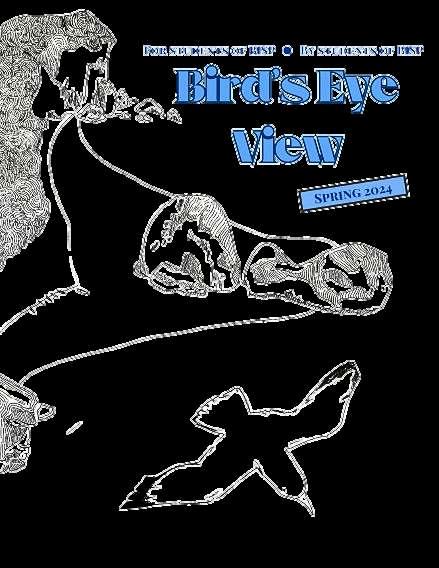
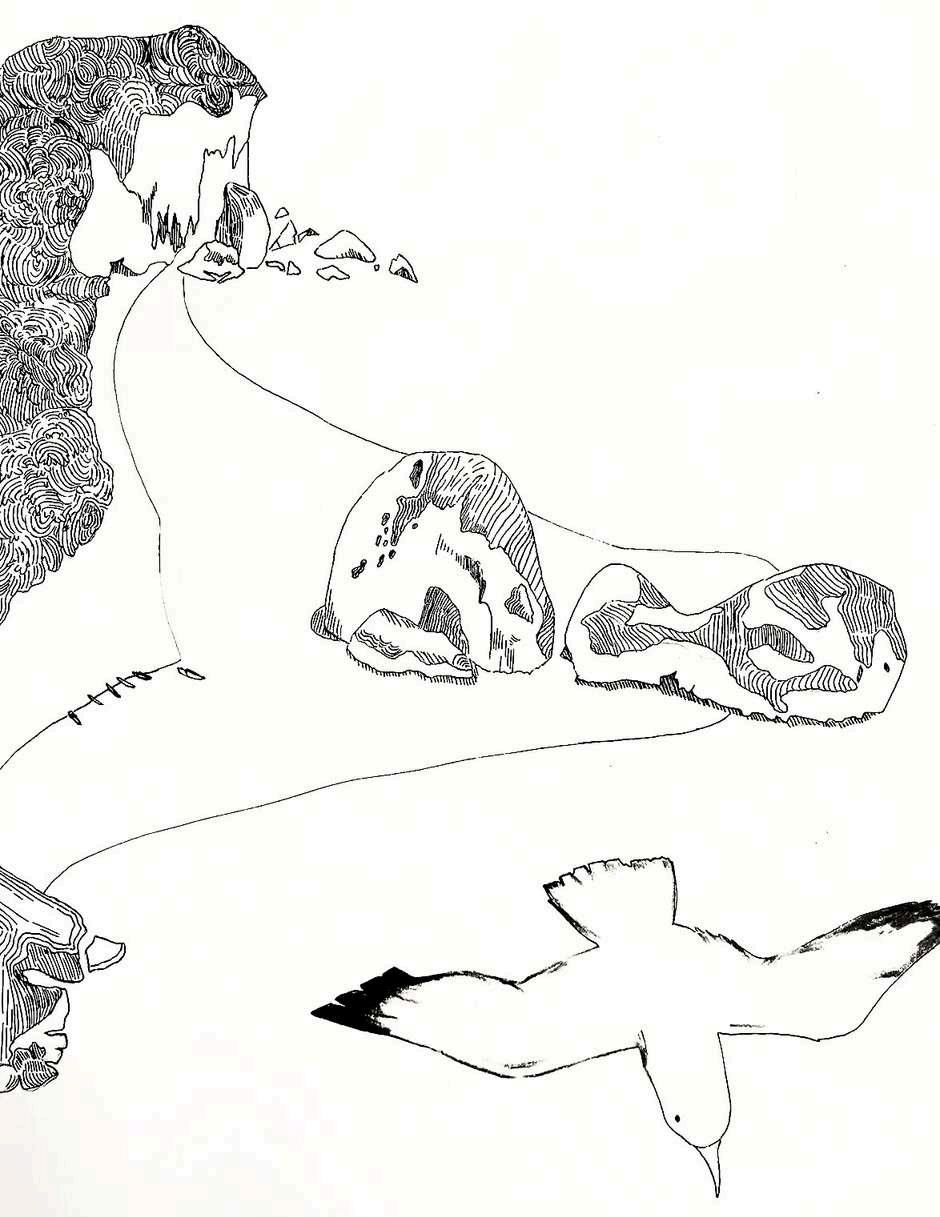






































A very warm welcome to the first ever edition of our new student-run ‘Birds Eye View’ magazine!
Inspired by our Sea Eagle mascot, students at BISP have submitted 16 pieces of work aiming to provide a comprehensive view of life as an international student in Phuket. This includes exclusive features highlighting the Behind-The-Scenes from the Student Leadership Team, informative highlights of Term 2's events and experiences, and impressive work exploring the interests and perspectives of students regarding the world around us, all submitted by students from Year 8 to Year 12! Feel free to skip through, skim articles and find something that interests you - after all, there is certainly something in here for everyone!
Student voice is incredibly important to continue to develop at BISP, in order to cultivate confident and independent adults as well as brightening the school atmosphere. Thus, the 2024 Student Leadership Team created this magazine in order to empower students to articulate themselves creatively and without curriculum pressure. Every single student who has submitted to this edition has seen improvements in their skills as a result and has gained confidence. As much as this magazine is a delight to read, it is perhaps even more rewarding to contribute to!
We would very much like to express our gratitude for everyone who dedicated so much work to making this possible. Thank you to Mr Crossland for enabling this to run, and Mr Dilts for providing crucial feedback and support throughout the process. A huge thank you to the Student Editors who all pitched in to compile and format this issue, and particularly Ember and Katie who have sacrificed countless hours and many nights to organise every aspect of this magazine. Finally, more than anything, thank you to everyone who submitted to this edition! We could not have achieved such a fantastic first publication without you.
Without further ado, we hope you enjoy the Spring 2024 edition!
A collection of works written by Secondary students about student life
Life in Boarding: A Beginner’s Guide.............................................................
Shakespeare Festival: Romeo & Juliet............................................................
Celebrating International Women’s Day at BISP..........................................
Women Lost in History.....................................................................................
THAIMUN XI 2024..............................................................................................
Updates from the Student Leadership Team at BISP
Wellbeing: How to Maintain Positivity During the School Week...............
Events: Valentine’s Day Roses.........................................................................
Events: Valentine’s Day Dance........................................................................
Academics: What’s Happening in Academics?..............................................
Wellbeing: The Peer Support Group...............................................................
STUDENT FEATURES | LIFE BEYOND BISP
Fascinating passion projects submitted by BISP Secondary students
Where Did the Famous Family Game UNO Come From?............................
Environmental Focus: Carbon Footprint in China....................................... Physics News......................................................................................................
Recommendations.................................................................................
Spotlight: Russia................................................................................
Smile........................................................................................................

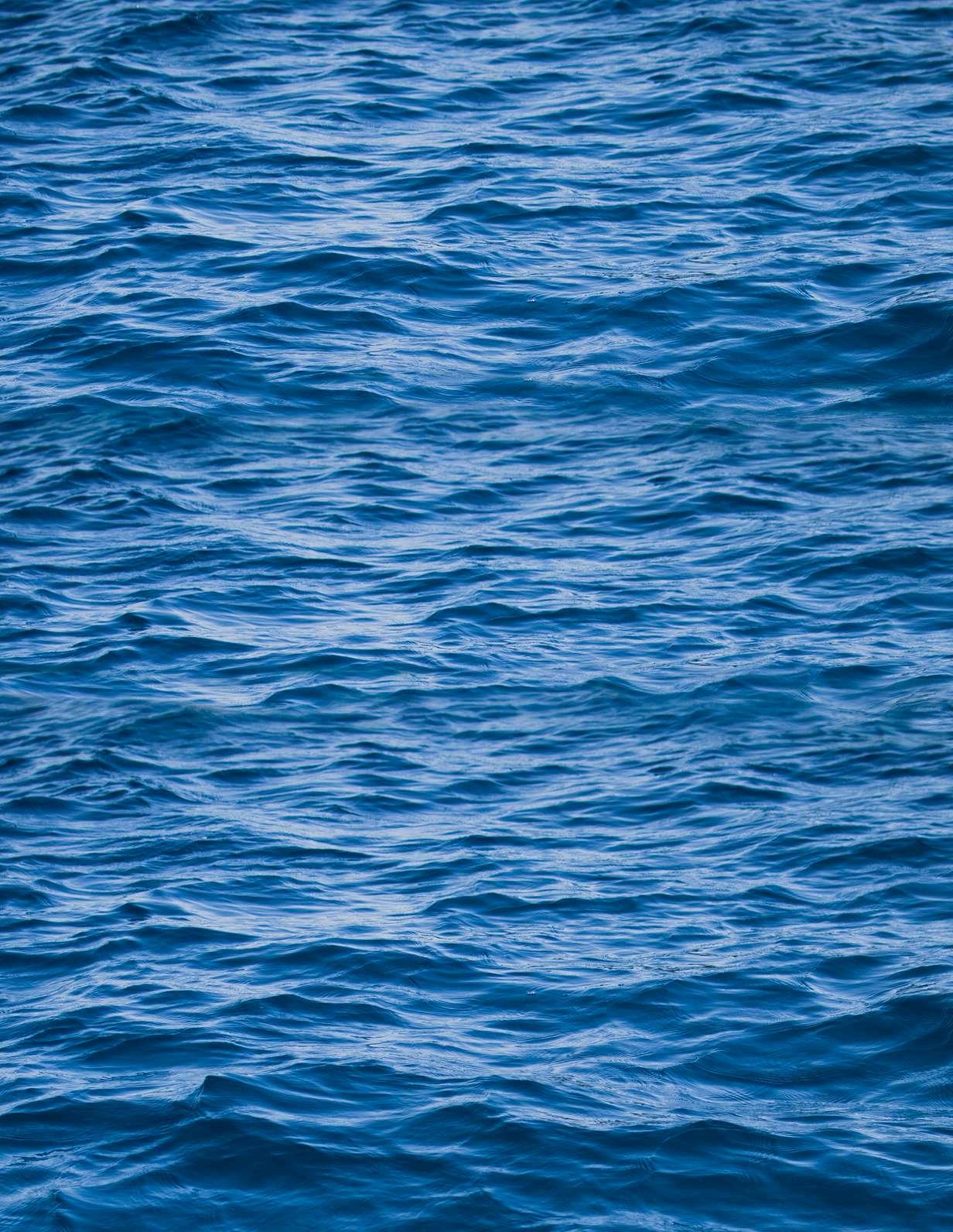

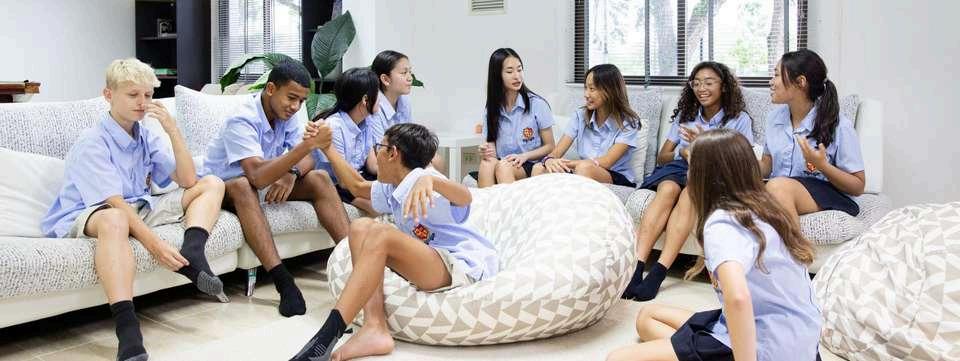
By definition, a boarder is a student that lives inside the school during the semester; there are 2 types of boarders: part-time and full-time.
Part-time: Monday to Friday
Full-time: Permanently live inside school (school holidays excluded!)
My name is Kirill. I've spent over one year living as a full-time boarder, which is my first time ever living inside a school; I’ve lived in 2 houses and I’ll give you insider details about my life as a boarder, as well as share some of my classmates’ experiences.
There are a total of 8 houses, 4 of which don’t host students, so I’ll talk about the other 4 where Secondary students live. They are named as follows:
Naiharn House (Y6-10, Boys)
Karon House (Y10-13, Girls)
Kalim House (Y10-13, Boys)
Rawai House (Y6-9, Girls)
Every building has 3 floors (including the ground floor) where the 1st floor is a public living room with a kitchen, TV, tables, couches, table-tennis, a pool table and a piano room.Second and third floors are where the student rooms are located; there are about 20 rooms per floor.
Students are designated rooms with 1 person per room. The configuration of your room will vary depending on what house you are in; in junior houses (Y10-11) you’ll get a relatively simple living space that has a work table, chair, air conditioning, shelf, drawer, and a mighty wardrobe.
In junior houses the bathrooms are shared between everyone; there are 2 sinks, 3 shower cabins and 3 toilet cabins in each bathroom, and there are 2 per floor, 1 for each end. In senior houses you get the same things as junior houses do, but with a major upgrade: you get a personal bathroom between 2 rooms with a toilet, shower, and sink.
Additionally, you get a more dedicated working table with lighting, perhaps highlighting the increase in workload as you move from IGCSE to IB.
I recently found that bathrooms are often shared between 2 people even in senior houses; you may need luck to get your very own bathroom. Additionally, there is one room in the junior house (Naiharn) that has an integrated bathroom.
Last year I was Y10 in the junior house, and when we were on study leave I was allocated to one of the rooms in the senior house and it was genuinely awesome - the senior room felt much more like a personal space to me. This year boarding is very popular with Y10 students, so me and my Y11 colleagues were moved into the senior houses!
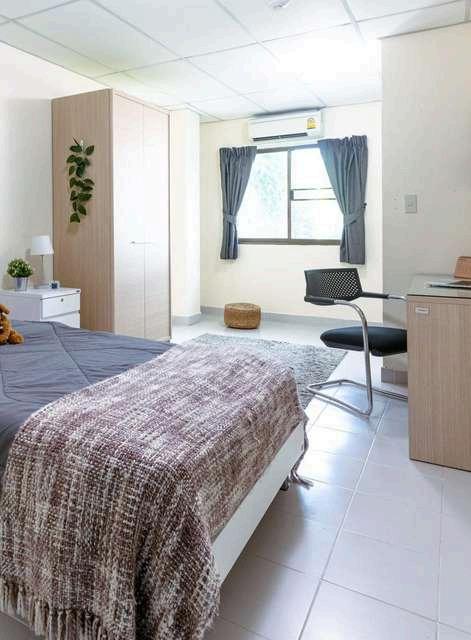
06:30 - Official wake-up time. At that time, one of the houseparents will knock on your door. It’s assumed that you are already awake, so they won’t bother to come inside of your room.
07:15 - Now you must be out of the building all packed and ready for school, heading for breakfast. On your way out, I recommend opening the windows so that the room is ventilated while you are away.
07:45 - You are supposed to be heading to the MTB for registration in your tutor room.
14:35 - Once school ends, the boarding houses will open. I usually come to my room, change clothes and head downstairs for a cup of tea and chatter with a houseparent. After that I go back into my room and do schoolwork.
What you do after school is entirely up to you, though the very vast majority of people are either going swimming, training football, or doing some other sport.
17:40 - You need to be heading out for dinner - the house will be closed until 18:30.
The dinner food barely varies from what you would normally eat at lunch time; occasionally there will be fancier foods (i.e Sushi or Italian pasta) but not always.
19:00 - We have a roll-call, where everyone gathers up at the first floor for registration and announcements.
19:15 - Prep time starts If you are a junior (Y10-11), you are expected to be silently studying on the first floor, though this rule is being revisited at the moment, with 4 or 5 Y11 students (including me) on trial being granted revision upstairs 3 times per week. If you are Y10 prep time lasts 1 hour - if you are Y11 and above your prep time will be 1 hour 30 minutes which in my experience takes time getting used to, but now I’m finding myself needing the full 1 hour 45 minutes that we are given.
If you are a senior (Y12-13) you will be allowed to go upstairs to conduct your self-study session.
20:15/20:45 - Once prep time is over, you are again free to do whatever you want.
22:00 - You are asked to bring your laptop downstairs for storage though it’s not required for Y13 students.
22:30 - Lights out - the lights coming from outside shut off and it becomes noticeably darker - it’s one of the good things about boarding, you don’t need to worry about street lamps. Opening the window at night may not be a good idea because you are likely to be exposed to the loud sound of crickets (ventilate the room whilst you are away!)
I can say for sure that the Friday evening vibe is a good experience - dinner is the same as usual and you are out from 5:45 to 6:30, There is no prep time, you are not required to bring your laptop down, and the lights are out at 23:00. Some people go to relax in their rooms while others go to the sports hall that opens at 20:00 on Friday and Saturday only. There are also part-time borders that get picked up by their parents/guardians right after school but do note that you still need to come to your boarding house with a parent/guardian to inform the houseparent.
Speaking of sign-outs, junior students (Y10-11) are allowed to go out on weekends, once paperwork is signed - just make sure the person signing you out is an adult. Senior students (Y12-13) have something called the IB signout where you are allowed to go outside of school grounds twice in a week, with one IB signout for working days (Mon-Fri), and one for the weekend, though signing out twice on the weekend is permitted. The only requirement to do the IB Signout is to have at least another senior student go out with you; many people end up signing out either with their parents or friends and the house is notably quieter than it is in working days.
So what do we do on the weekends? The answer, once again, is that it’s up to you. When there is no school, rubbing your eyes to the 6:30 alarm no longer becomes a requirement and you are free to wake up whenever you want.
On Saturday breakfast starts as normal (7:00) and ends at 10:00; on Sunday it starts at 8:00 and ends at 10:00 like on Saturday - Lunch and dinner are the exact same on weekends as they are on normal school days. If you are a full-time boarder, during the day you are either signed out, hanging around in your boarding house or going on one of the school trips, which do vary from week to week, and some are definitely better than others. The best one in my opinion is the trip to Central Festival where you get about 2 hours of shopping time (it used to be 4!) which is very valuable if you are a full-time boarder that doesn’t sign out. Other trips include trips to the Thai market, waterparks, barber shops, massage, ATV trips and a few more.
To the disappointment of some, on Sunday evening the holiday vibe quickly disappears; everything is the same as school days - same roll-call, same prep-time, same lights out time and you need to hand in your laptop if you are a junior student. Back to the usual routine!
Boarding can become repetitive if you don’t sign out at allevery day you will be living inside the school and you may feel isolated from the outer world. I recommend getting a break now and again.Every time I go back to my parents for holidays I feel like I’m breathing fresh air again because I’m once again back in civilization, where I predominantly belong.
Living inside a school campus requires a degree of independence and responsibility as you are mostly left to your own device, and that’s where all the personal planning (i.e making and committing to schedules) becomes important. The social aspect will become an integral part of your boarding life and please, don’t get offended if someone comes into your room, it's part of the fun. One of my classmates said that boarding is better than living outside because it’s like having an overnight stay with your friend every day.
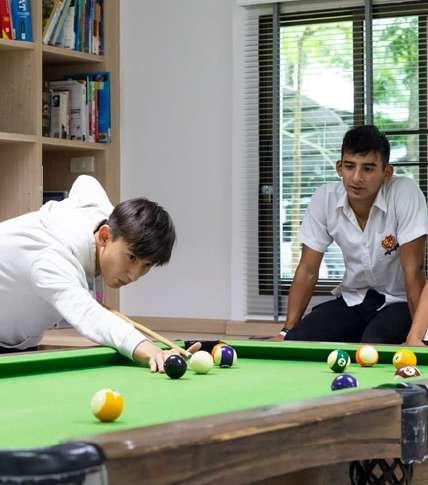
On March 27th, as part of World Theatre Week, students from Year 7 to Year 11 came together to put together Shakespeare’s
timeless classic, “Romeo and Juliet,” in a studentled festival. The festival was a vibrant showcase of the students’ passion for the arts and their dedication to bringing Shakespeare’s words to life on stage.
From the famous balcony scene to the tragic ending, the performances captivated the audience with their creativity and emotional depth. The festival not only honored Shakespeare’s legacy but also showcased the talents and enthusiasm of the young performers, making it a memorable event for all involved.
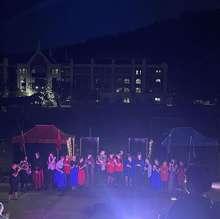


As one of the co-directors for this short 30 mins production. I would like to say a massive thank you to the English Department and Performing Arts Department for giving us free rein and letting us creatively explore the process of directing and putting on a show. This as a whole would not be possible without the help from everyone: BDE, Art, etc. I am immensely proud of all members of our cast and crew, and I cannot thank them enough! I can’t wait to work together again on future productions!
 -Mammoth, Y10, Director
-Mammoth, Y10, Director
I loved doing Shakespeare this year. This experience was really exciting and it was very nice - albeit quite challenging- to put it all together and to see it turn into an actual show I was proud of. It was interesting for me to take a step back from acting and to put my directing skills to use. I’m grateful for the opportunity and for everyone who helped.
-Katie,
Y10, Director
International Women’s Day, IWD, hosted on March 8th every year, focuses on celebrating women ’ s achievements and highlights prevalent issues such as gender inequality. This year to celebrate this momentous global day, many events were hosted and student-led creations were made within campus but also beyond the boundaries of British International School Phuket, BISP. Undoubtedly, IWD and the achievements of phenomenal women who are a part of the school community were recognized and celebrated far more than all the preceding years.

Invited students and teachers had the opportunity to attend a charity event hosted by Phuket Has Been Good To Us at Courtyard by Marriott Phuket Town, with speeches from women across Phuket.
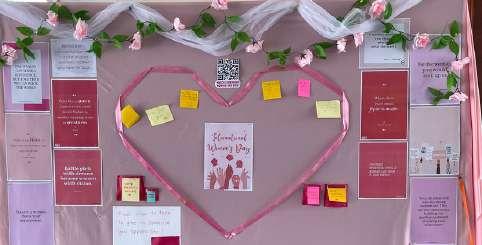
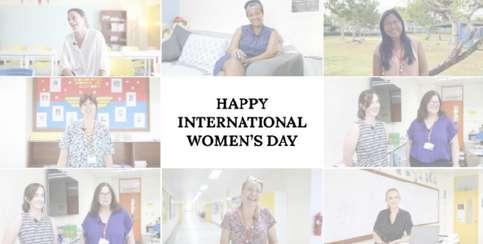
BISP students had the opportunity to interact with the bulletin board - decorated with informative posters, empowering quotes and interactive elements - by the Peer Support Group members to celebrate the day.
A range of female teachers across different faculties were able to give insight into their personal experiences with women empowerment. This video was presented during tutor period to all students.

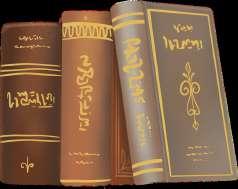

The 8th of March is a day to appreciate and acknowledge important women all around the globe. History is full of outstanding women who have achieved great things, however, there are many whose achievements haven’t been appreciated enough. On that note, here are a few of the women throughout the last two centuries who deserve more appreciation and recognition for their actions.


Hedy Lamarr
Hedy Lamarr is a woman of many talents. Although she is mainly known for her acting career during the Golden Age of Hollywood, what very few people know is the impact she made on science and technology. In attempts to aid the Allies during World War 2, Lamarr experimented with radio frequencies to prevent interception and interrupting of transmission. She shared her newfound concept of “frequency hopping” with the U.S. Navy and later codeveloped a patent in 1941.
This led to the development of modern wireless technologies such as Bluetooth, GPS, and Wi-Fi.
Caroline Norton
Caroline Norton made one of the greatest impacts on women in England in the 19th century.

After her forced marriage to George Norton in desperation to protect her family, she finally left him in 1836. Her husband then accused her of having an affair with a member of their social circle and prevented her from being able to see their children. Norton’s. response to this was creating a campaign to support divorced women of England and writing a letter to Queen Victoria demanding more equality. This resulted in the Divorce Act of 1857 which can be seen as the first small step in granting women more authority in marriage and divorce

Bessie Coleman
Bessie Coleman was the first African American and Native American woman to obtain a pilot license in the U S After being inspired by her pilot brother, Coleman applied to several aviation schools across the country but she was declined due to both sexual and racial discrimination Instead of giving up on her dream, Coleman learned French and moved to Le Crotoy in France where he was able to attend an aviation school and earn a pilot license.
Up until her death, Coleman travelled the country performing aviation tricks, giving lessons, and encouraging African American women to follow their dreams and fight against the inequality in their country
Grace Hopper


After receiving her Ph.D. in Mathematics from Yale University, Grace Hopper joined the U.S. Navy following the bombing of Pearl Harbour. Upon receiving her commission Hopper was moved to Harvard University to work on the first electromechanical computer in the country as well as other programming calculations for the war effort After the war, Hopper decided to continue pursuing the computing field and contributed greatly to the creation of the first commercial electronic computer She also was a compiler which translated a mathematical code into a computer-readable one, this is the base for most programming languages today In addition to all of this, Hopper encouraged computers to be more accessible to those without a mathematics or programming degree Hopper’s achievements are great examples of how determination and dedication can beat the odds and lead a powerful woman to thrive even in a heavily male-dominated field.
.

Originally from a town near Shanghai, China, Chien-Shiung Wu moved to San Francisco where she earned her PhD at the University of California, Berkley. After working in Princeton University Wu joined the Manhattan Project at Columbia University, with a main focus on radiation. After the war, Wu worked alongside Tsung Dao Lee and Chen Ning Yang on disproving the “law of conservation of parity, " leading to them winning the Nobel Prize while Wu’s contribution was excluded.
Unfortunately, this isn’t the sole case when a woman ’ s work was stolen and she was deprived of any credit. After this, she continued pursuing her career and won quite a few awards which included the National Medal of Science and the first doctorate in Princeton to be awarded to a woman. Wu also is the first woman to become the president of the American Physical Society. Her book, published in 1965 still holds value amongst physicists as it is referred to to this day.
This list can go on for pages, however these were some of the stories that I found very inspiring. I hope that this article encourages you to follow your dreams no matter the odds and to appreciate women in your life not only on International Women’s Day, but also every day.



ThaiMUN is a prestigious 3-day academic event that simulates the United Nations to help students engage in diplomacy and international relations. ThaiMUN XI was hosted at Brighton College Bangkok with over 600 delegates from all over Asia participating in 17 different committees debating on a range of topics from protection of migrant workers to the Kosovo War! This year, BISP had the honour of being invited and sent 6 students that participated in 5 different committees.

Best Delegate - Kathryn (Katie) Willis
Best Position Paper - Elleanna Grace Lysenkova
Honourable Mention - Georgii Kuznetsov
Hi I’m Anna! I was a part of the ECOSOC International Labour Organization during THAIMUN XI, where we focused on improving the working standards of domestic migrants worldwide. This was my first experience delegating and submitting a position paper for a big conference. It was truly an amazing weekend, I got to make new friends and develop my public speaking skills. I would encourage more people at BISP to participate in our MUN club which is run on Tuesdays after school, and hopefully next year we will get a full team of 12 to take part in the THAIMUN!


Hello, I'm Theo. The conference was unlike anything I have experienced before, and I intend on continuing with doing other MUNs. I represented Switzerland in the Economic and Financial Council of the UN (ECOFIN), looking at issues of debt relief for struggling economies, and the impact of cryptocurrencies on the world economy. This committee was immensely challenging due to the preliminary economic knowledge required to be proficient in the debate proceedings. This was my second ever conference, and I know for a fact that there are so many more to come for me. I soundly believe that MUN has something for everyone, as it possesses a wide range of committees addressing all kinds of topics in the pursuit of a better tomorrow I met amazing new people, and had an absolutely unforgettable experience delegating there that left me tired from politics for probably the first time ever I would highly recommend anyone remotely interested to give it all a shot by joining our MUN club on Tuesdays after school
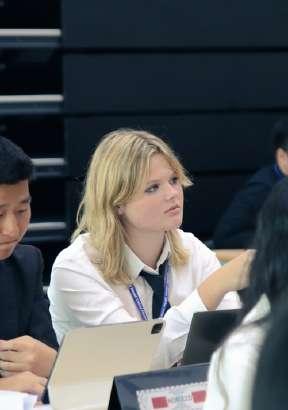
Hello, my name is Paige and I represented Kenya for the three days within the SPECPOL committee and the General Assembly. Within my committee, delegates formed resolutions on two topics: The decolonization of Francophone Africa and annexation of occupied territories In Israel. The week prior, I was incredibly nervous which is something I am sure a lot of other delegates can relate to. I felt that I had not done enough research and that speaking publicly would be completely terrifying and whilst the former may be accurate, the latter couldn't be further from the truth. The new people that I met and engaged with within the conference created such a fun and comfortable environment for everyone to participate in I built more friendships in a matter of 3 days then you would think possible in a week The Chairs as well as my fellow delegates were all unbelievably kind and whilst on multiple occasions I did embarrass myself - like accidentally asking a delegate to clarify the resolution that I wrote - the other members of my committee were never judgemental or harsh. I strongly recommend to anyone who is interested in politics, current affairs or just public speaking and debate to attend THAIMUN next year. It is a completely unforgettable experience.
Hi, my name is George. I represented Ethiopia in SPECPOL. However, I want to tell you about the chaotic experience on the 3rd day, which was General Assembly. Imagine an auditorium with 600 people, each trying to form their blocs and promote their ideas and opinions. Did you imagine it? It might be horrible, right? I had to not only witness it but participate and not just in the role of a simple delegate, but as a leader of an African bloc No one forced me to do it, but I thought: “How can African countries and Ethiopia have some voice in such a huge event?” The answer was the bloc united from the African Union countries, which was led by Ethiopia and Turkey And I am certainly taking pride in the fact that the only resolution that passed was ours Despite all of the shouting, crowds and trying to memorise your allies, GA was very nice and left mostly a positive impression on me. I hope some of you will pick MUN next year and I am very sad I might not be able to take part in it because I am leaving school. Overall the first BISP MUN trip was one of the best experiences I have ever had, it was the first time I was actually tired of politics :)
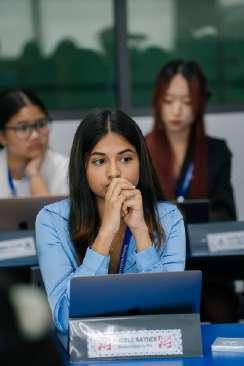

Hi, I'm Vanshika. I participated in the UK Parliamentary Committee (UKPC), representing Angela Rayner, the Shadow Deputy Prime Minister. UKPC, being an advanced committee for experienced debaters required me to devote my full attention at all times, which could be quite exhausting because of the 10-hour days, but it really did push me out of my comfort zone to be a quick thinker Our discussions revolved around pressing issues such as electoral reform, Scottish independence, and the national migrant crisis I had a great time and loved being in an intellectually stimulating environment that came from being around so many brilliant students from schools in Asia One of the things I found particularly interesting was that I had to be updated with what was happening in real time, like constantly checking the twitter account of my character! I’m very grateful for the valuable insight I gained about the intricacies of processing a bill in the UK. I highly recommend participating in MUN for those interested in politics and global affairs. I look forward to returning next year!
Hi, I’m Katie, and I was in HSOC, a specialised committee where I represented a different character (not country) every day in various historical conflicts Despite being the most experienced delegate from BISP, this presented a new challenge as I had to strategise for wars ranging from 460 BCE (Athens vs Sparta) all the way to 1954 and 1952 with the Siege of Dien Bien Phu and Malayan Emergency We were encouraged to aim for creative actions There were no speeches or resolutions, and each side of the war was isolated in a room with only a map and costly, unreliable espionage to plan with. I built temples, participated in an Athenian pop group for cultural warfare and even burned down Athens in a shocking military betrayal that paid off hours of manipulation, holding 5 top generals hostage, all on the first day. I had the pleasure of winning my conflicts on all 3 days, and achieving Best Delegate, following plans of sabotage, traps and even a highly-specific poisoning plot that sent the British to the ICJ for crimes against humanity. All in all, this was an incredibly exciting committee that tested my flexibility and strategy, and I highly recommend it for all interested in DnD, ially those not comfortable with public speaking or writing resolutions


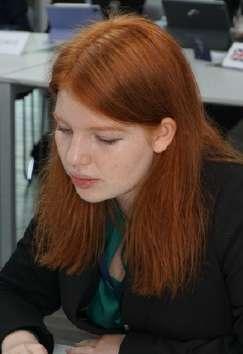
A huge thank you to everyone who made this trip possible, including Mr Perkins and Mrs Willis for chaperoning and organising, Mr John Wood for inviting us, Katie for teaching and leading the MUN club, and everyone who attended and did their best. Interested? Join the MUN club on Tuesdays after school, or email Katie for more information.

School life can be overwhelmingly stressful for every student. From having to deal with the new curriculum, fighting with your friends, and stressing about a bad grade, to feeling the pressure of having to plan out the next 5 years of your life after graduation. I get it.
We all have days when you just want to give up on all the work you have to do, lock yourself in your room and watch your favourite show, forgetting about the rest of the world. Unfortunately, most of the time we also have responsibilities we simply must attend to. With that in mind, here are a few small things that are not too time-consuming for you to fit into your week.
1 Try out a new hobby
I know, this sounds like something that most students don’t have time for, however, it doesn’t have to be something huge Practise playing the piano for 15 minutes a day, or learn to cook and try to prepare at least one of your meals daily yourself. Little hobbies can often be a great distraction from the stress of our school life.
2 Go on a walk listening to music or a podcast
Personally, whenever I feel too overwhelmed, I grab my earphones and go outside on a walk around the village where I live. I find this to be my favourite way to calm down, relax my mind, and disassociate from the world, while also connecting to nature and admiring the views. However, always be cautious of your surroundings when outside with earphones.
4 Share your thoughts with others
More often than not, all you really need is someone to share your problems with In our school community, we try to create a sense of trust and understanding between all its members, therefore if you are feeling down I encourage you to talk to a friend, classmate, parent, school counsellor or anyone from the Peer Support Group If you are facing an issue, talking through it can bring you to the solution naturally, so don’t be afraid to share your thoughts!
3 Make sure to get your sleep in -
This can arguably be the most important point on this list Nothing will make you feel as refreshed as a good, long night of sleep As the workload increases throughout the school journey, it becomes more and more difficult to ensure that you are sleeping at least 8 hours a day, although caffeine and power naps will never serve as a proper replacement for a full night of sleep Your mind and grades will thank you, not to mention the newfound energy that will appear seemingly out of nowhere.
5 Make plans for the weekend
Sometimes all you need is an event to look forward to, and the best part is it doesn’t have to be big. Knowing that you are going to the movies or the beach with your friends or simply getting pizza this Friday is sometimes all you need to motivate you to get through the week. Think about it, if you come up with a plan on Monday, you confirm it on Tuesday with your friends and family, and by Wednesday half of the week is done, so if you get to Wednesday you can definitely make it to the weekend Thursday comes around but would you look at that, Friday is tomorrow! And on Friday you can think about the fact that the weekend is already here.
It’s
important to remember that you will always have something going on, of course, some days will be busier and more stressful than others but after you graduate high school you will have university work and you’ll have to get a job with different events years to come. The excuse of “I don’t
have
time” will always be there, but the truth is, you need to make time for things that are important to you and your mental health always needs to be a priority.



In celebration of Valentine’s Day, the day exclusively dedicated to sharing affection and compassion, I as the Head of Events organised roses for the entire school community with the help of a grand number of individuals. This included members of the Student Leadership Team, Student Representatives, my reliable friends and last but most certainly not least, the staff at the Secondary Office.
Despite only anticipating around 200 roses in sales, we received an overwhelming number of 550 roses. Ranging from single roses in appreciation for teachers to bouquets of 20 roses, we delivered numerous roses with thoughtful messages to every tutor group at BISP on the last day of school before the February break. Despite the tiresome process that we had to push through and manage, the jubilant faces and gleaming smiles of those who received roses washed our fatigue away.
With the Wellbeing Day being the preceding day, the Student Leadership Team including myself picked up the roses from the supplier and de-thorned, pruned and cut them before placing them in clean water. However, the preparation did not end there, we had to face the tedious task of attaching the messages written by the sender onto the roses and organising them into different buckets labelled with the different tutor groups. By the end of the process, blasting uplifting music, taking a leisurely walk or snacking on baked goods was no longer effective in counteracting our pure exhaustion. Nonetheless, we are proud that we were able to fulfil all of the orders and manage everything despite the time constraint.
Overall, we Student Leaders are grateful for all of the orders and for all of the support that we got from not only the students but from the staff as well.






On the 23rd of February, 2024, I with the help of the Student Leadership Team, House Captains and students from KS4, hosted a Valentine’s Disco for Years 7 to 9 and a Valentine’s Dance for Years 10 to 13.
Although it has only been four months since I was appointed as the Deputy Head Student in charge of Events, I can confidently say that the organisation of these two events has been an exhilarating, nerve-wracking journey in many waves. The organisational process had many boulders that had to be overcome swiftly and flawlessly. Despite this being incredibly difficult, with the support of the Senior Leadership Team and the different departments the Drama, Music, Marketing, Housekeeping, Lighting and Sound Department at BISP, I was able to bring my vision to life and execute the event successfully.
On one hand, the Valentine’s Disco was filled with extroverted students dancing carelessly, shouting lyrics and playing games led by the House Captains. Some students opted to fill their mouths with complimentary snacks whilst others dedicated their time to winning house points for their team. From “Pin the Arrow on the Cupid” to the famous party game, limbo, the younger students were participating eagerly in hopes of winning the Valentine’s Daythemed prize.
Contrastingly, the Valentine’s Dance for the senior school students was much more atmospheric. It consisted of everlasting special smoke and lighting effects specially coordinated by our very own student lighting director and Drama Teacher, a flawless performance by a talented pianist and once again eager students shouting lyrics word for word.
Although the number of participants was quite restricted due to sports events happening concurrently, I am still incredibly proud of the disco and the collaborative work that we were able to conduct to make this possible. From having to drive to Macro to buy goods to managing finances whilst having to revise for exams, it was a challenging but valuable experience. I cannot wait to see where the role takes me and am excited about all the events that I will be able to host.


An exciting new addition to how we learn, BISP is now introducing study groups that are starting off in Years 7,8 and 9. It will involve tutors from the older years (10,11,12) helping KS3 with their subjects. We are starting with the three sciences and maths as this is what we saw they needed help with most in the survey we conducted.
This is a more informal way of learning as compared to normal one-on-one tutoring sessions and is hopefully a lot more collaborative amongst peers. This is a drop-in drop-out session occurring on specific days both lunch and after school to help make sure everyone can come when they need help. The schedule for everything can be found below.
This is a great opportunity for KS3 students to get any extra help they need from other students who have been where they are and can provide them with helpful input. It is also an easy IA or CAS service for the older students as it will also be on rotation with at least one other person. There will be at least two different people for each session so both can coordinate when they want to do it whether that be separately on different weeks or together. This is going to be up and running by Term 3 and I hope to see as many people there as possible!


My goal is to help the younger students to make their academic life as low-stress as I can, in particular the Year 11’s who are preparing for their final exams. As a student who was in that position just a few months ago and remembers just what it is like, as your head of academics I want to try to make this as easy as possible so that they know exactly what they are walking into and are fully prepared.
This is why a group of Year 12 students just recently talked to the Year 11’s about their upcoming exams as a whole as well as their specific subjects. We had people from every subject come in to talk about what helped them get through it and any useful tips that got them that dream grade. We also talked to them about helpful study skills that worked for us and may have the same effect on them. The link to the presentation we gave to them is below.
For both Year 10 and 11 entering IGCSEs, we now have a new resource for them! These are notes from previous IGCSE students for all the sciences. This is especially helpful as most resources have a lot of unnecessary information or are outdated so these are extra specific and up-to-date. This is going to be a great resource for the current KS4 and the future ones as our goal is for them to be updated regularly by past students to suit any syllabus changes.
Also for any future IB students like the current Year 11’s we are currently creating a pre-IB website which has all the information anyone may need on their future subject choices so that they are fully prepared for what is to come and if they have any doubts over the summer, this will be there for them to double-check. It will be fully up and running by summer.

As any IB student knows the common room is a great place to relax but not always to study especially when you have two whole years in one relatively small room. This is why we now have a new place if you need to cram for a test or just want to catch up and actually do some work in your free.
The SMART Room is now available at specific times for IB students to study if the common room becomes too hectic. Also if it does not seem to be free when you are then remember the library usually is. If you feel like you cannot concentrate then you can always go to the library as it is almost always empty during classes and can be a great place to work. The schedule for the SMART room can be seen below.

If you want some professional tutoring but can’t find any in Phuket, then TutorHouse might be what you need. This is an online tutoring website that has most subjects on it and lets you choose who you want to be your tutor based on their credentials and what they have to say about themselves. It is a very reputable website and if at any point you don’t think your tutor is right for you, you can always just switch to another one to find what works for you.
A lot of you also said that you wanted study groups so I am putting into place a Google Drive with all of the different subjects so that everyone in the class can add their own resources and notes and you can all help each other. There will also be times closer to our EOYs where a timetable will be put out of timings that work best for the majority of a specific class so that study groups can be organised with resources like PPQs provided by the teacher to work through.
Other IB resources include:
Save my Exams - Maths, Biology, Chemistry, Physics, ESS, Economics, Geography, Business, Psychology
Revision Village - Maths, Chemistry, Physics, Biology
ExamMate - Biology, Chemistry, Physics, Economics, Psychology, Maths
LitCharts and Sparknotes - English
Christos Nikolaidis - Maths
A huge moment of appreciation to Paige Y12 who was kind enough to take some time to respond to all of these questions. If you are interested in joining the Peer Support Group, please contact Mrs Godfrey or any of the members.
What made you join the PSG? Would you recommend other people to join?
“I joined because one of my friends went there and told me she found it really fun and encouraged me to join. After coming there for the first time I felt motivated to make a change within the school which is why I stayed.”
Who should join the PSG?
“People who care about the wellbeing of the school and people who want to make a difference with how others are treated as well as how mental health issues are addressed in school.”
How would you describe your experience in the PSG so far?
“Pretty good, I like that we all get a say and can contribute our ideas. It’s a way to express student voice through your own experience and to see what’s bothering other students. Overall it is a really nice community and feels like a safe space”
Do you have any specific goals/visions that you would like
to bring to life with the PSG?
“I'd like to incorporate more ways for athletes to be supported. When they have a game they should get support, we accommodate people who are doing exams but athletes are also going through it and it’d be nice to help them.”
What was your favourite thing the PSG did so far?
“Decorating the exam room, it was a cute idea and I think it really helped people.”
What is your favourite part about the PSG?
“That as girls we can all rant about our experience but also we are able to do something about it. I like how we all can relate to certain issues and work towards solving them. I also like the members of PSG.”
Taisiia Y12 - Head of Wellbeing
The Peer Support Group was designed for students to help other members of the school community as well as make changes for the benefit of the students. Some of the things the PSG has done throughout this school year include leading a session with the Year 11 to help them prepare for their mocks, decorating the 5th-floor exam room for the Year 13 and organising the distribution of notes from students to teachers as a part of the Women’s Day celebration.
The PSG usually meets once a week with the student counsellor Mrs Godfrey where they discuss their upcoming plans and arising issues. An interview has been conducted with one of the Year 12 members of the PSG who joined us at the beginning of this year where she shares her experience so far.
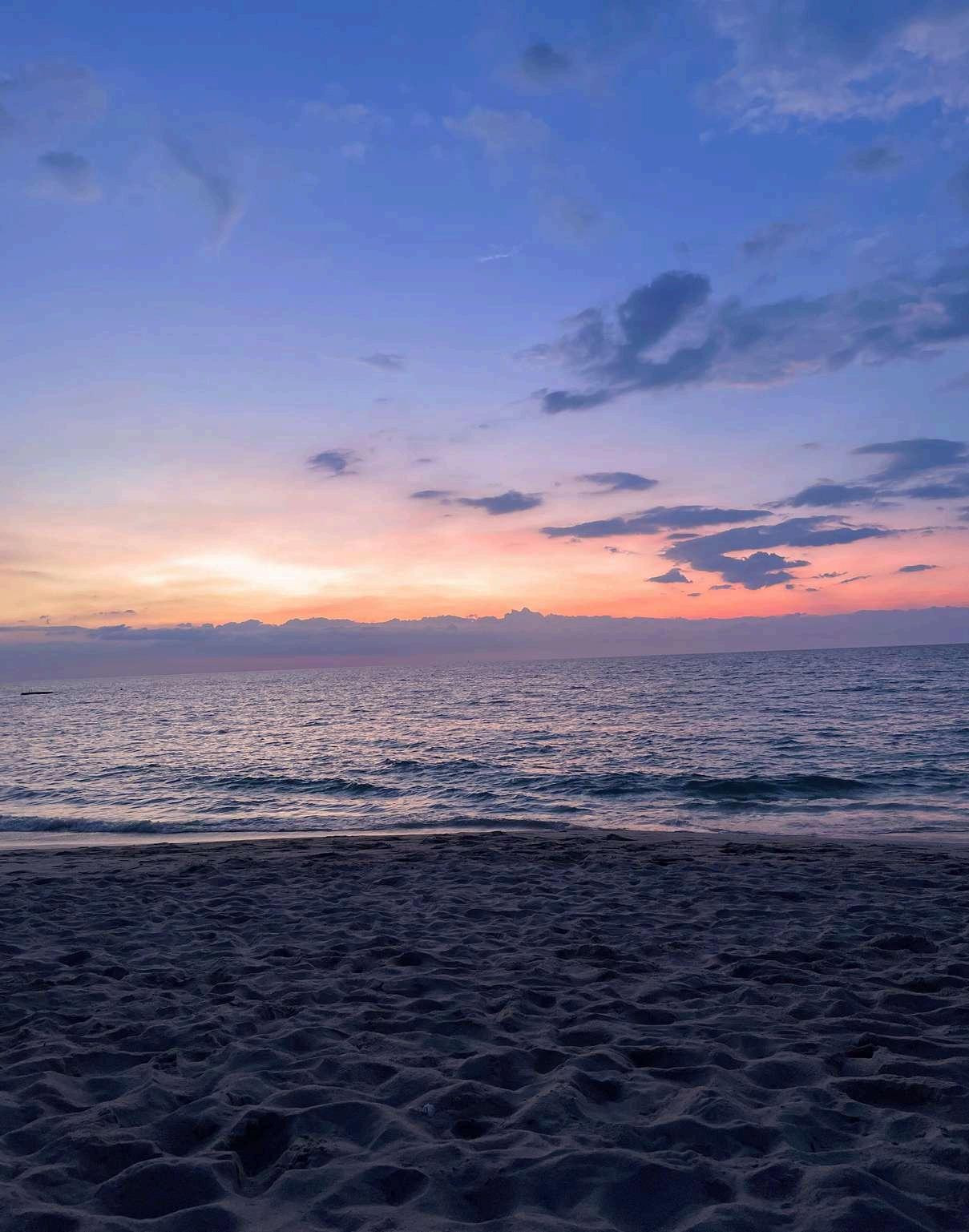
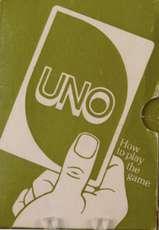




Daisy, Year 10
The creation of the iconic card game known across the globe as UNO has been well documented and recorded. This classic game was created in 1971 when American barbershop owner Merle Robbins from Reading, Ohio wanted to settle a friendly family argument against his son, Ray Robbins, regarding the rules of crazy eight. As a compromise Merle Robbins created an entirely new version of the game with a new set of rules to help simplify and make the game more enjoyable. The game was named UNO after the bingo rule of yelling out the word once.
The Robbins family made the first deck on their dining room table, and later they mortgaged their house to raise $8,000 and created the first 5,000 decks. The family started selling the decks through Merle’s barbershop and Ray helped by handing them out at his work as a teacher.
In 1972 Merle Robbins sold his rights to UNO to International Games for $50,000 with royalties of ten cents per copy. UNO has now gone on to be estimated to have made $17,366,346.27 in gross revenue since its creation.





China is an upper-middle-income country and one of the world’s fastest-developing economies. China’s vast territories include six main geographical features: snow-capped mountains, broad basins, high plateaus, terraced hills, deep river valleys, and sandy dunes
China has an abundance of energy resources, including natural gas, coal, hydropower, and other renewable energies. However, possession of rich resources is no guarantee of the holder’s capacity to use them appropriately. As is the case in many other major economies, China’s use of its abundant natural resources has led to a significant level of CO2 emission.

Shanghai’s Jinshan district, near the rural-urban fringe, is known for its air pollution. Due to the release of hazardous gases at a chemical plant explosion (18/06/22) the district currently functions as an industrial centre with very few residential settlements. Jinshan district has the highest level of air pollution of any of the city’s 16 districts. The local council has not taken action in response to the pollution, and Jinshan ideally needs an innovative air filtration system to bring air pollution down. Social protection measures should be introduced on the basis of further evaluation of the district’s air pollution in order to protect nearby populations from the health hazards associated with the district.
Furthermore, although Shanghai became the first city in China to implement rules on light pollution, the city center was recently found to be 25 times brighter than other areas near the city outskirts at night.
Some experts have suggested that to solve the overuse of electricity, legislation that imposes time restrictions on both private and public electricity use could be one approach. In 2020, Shanghai had a total power use of 16 trillion kilowatt hours, and Songjiang district has reached a power load of 2 million kw alone (the highest ever recorded within any district in 2022). Introducing specific power downtime for such districts should be prioritized by local councils In each of the 16 districts, the local Energy Administration councils could limit power usage based on the area ’ s main settlement function and previous power expenses In addition, it seems sensible to reduce power use during winter in particular, given lower levels of construction efficiency recorded during winter months. However, this would not necessarily be a very sustainable solution. Thewide-scalerelianceonfossilfuelindustriesalso causessevereenvironmentaldamage.
Thecalculationsaboveshow thechangeinCO2growth ratein[2013-2015and 2015-2017]comparedto thatof[2017-2019and 2019-2021].
Countermeasures have ameliorated the situation to some extent, and these effective responses are multifaceted and impressive given the nation’s rapidly increasing adoption of new technology, which complicates its CO2 emission composition
Increasing use of energy resources (both fossil fuels and renewable) has led to issues including urban sprawl and, consequently, the overuse of private vehicles, one of the biggest drivers of CO2 emissions Shanghai has suffered from one of the highest levels of congestion in the country, prompting huge public work programs.
The city has developed an extensive metro system to relieve greenhouse gas emissions and pressure on commuters. The underground network is the world’s largest metro network. The Shanghai metro provides 10 million residents with efficient transportation each day
Ultimately, it’s vital that in conurbations like Shanghai, governments continue to ensure maximum utilization of public transport to minimize CO2 production from private vehicles. Regarding industrial energy expense, no current restrictions have been introduced, and one practical response could be implementing power use limitations Whilst China has made consistent efforts to ameliorate its major conurbations' carbon footprint, not least through huge investments in renewable energy generation, hazardous and unevenly regulated districts like Jinshan still present hugely consequential social and environmental problems that will require bold, focused action to resolve

Regarding the last 3 months, there were a lot of important achievements accomplished by researchers in the science world. Here I have provided some of the most peculiar breakouts done by scientists related to the area of physics studies.


The James Webb Space Telescope (JWST), in its second year of operation, continues to astound the scientific community and the public alike. With its unparalleled observations, JWST challenges longstanding theories and offers a glimpse into the cosmos’s infancy, revealing supermassive black holes and galaxies that shine with unexpected brightness . These findings not only redefine our cosmic narratives but also inspire a reevaluation of the universe’s most fundamental processes.

In a groundbreaking discovery, scientists have detected gravitational waves emanating from the collision of supermassive black holes, marking a significant milestone in astrophysics . This achievement underscores the violent beauty of our universe and enhances our understanding of its most mysterious phenomena, providing new avenues for exploring the fabric of space-time.

On the quantum frontier, significant strides in computing hardware and error correction edge us closer to the realisation of quantum computers. Moreover, the successful teleportation of energy across microscopic distances through quantum vacuum exploitation hints at a future where the rules of physics are not just understood but harnessed .

In conclusion?...
i believe that The future can provide many insightful innovations. Sometimes, it is hard to believe that one can see for his own life so many breakouts in science and technology. This really shows that we live in a wonderful era, and we can actually contribute ourselves to the world of science if we really want it.
So
that’s gonna be it for this short article.By Petr, Year 12
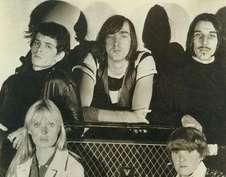
Looking to try new music? Leave your comfort zone and explore some new genres? Here are 5 song/album recommendations from 8 diverseand sometimes less accessible - genres, submitted by Katie, Paige, Angel and Zoe.
Alternative is more than a genre: it is an approach to music that defies all norms at the time. Although each of these songs are very different, the creativity and innovation that radiate off of them attract audiences searching for an interesting break from standard, boring Pop.
Hailing from many different periods and ensembles, these pieces from the Western Classical tradition each create a sense of undeniable beauty Whilst Ravel, Gjeilo and Vaughan Williams celebrate the natural wonder of the world around us, Barber and Faure direct our gaze inwards, at the strength and grief of the human experience
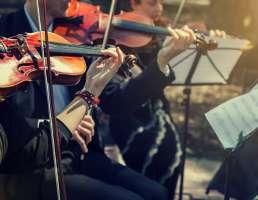

Boa - Twilight
Jacob Collier - DJESSE VOL 4 (Album)
Mazzy Star - Rose Blood
Radiohead - Weird Fishes/Arpeggi
The Smashing Pumpkins - Cupid de Locke

Barber - Adagio for Strings/Agnus Dei
Ravel - Une Barque Sur L'Océan
Faure - Elegie
Gjeilo - Tundra
ughan Williams - The Lark Ascending


Alternative Classical Jazz
K-Pop
PURPLE KISS - Sweet Juice
A fascinating industry with arguably a greater focus on performance than even music, K-Pop has produced some of the greatest hits of the last decade with its catchy melodies, grooving rhythms and surprisingly deep harmonies However, this selection aims to prod deeper past the most famous songs, providing a mixture of subgenres with more underrated songs for the casual listener.
SuperM - One (Monster & Infinity)
MAMAMOO - Decalcomanie
SHINee - Sherlock (Clue + Note)
BESTie - Excuse Me
Far from a dead genre, Jazz is still blooming and improvising today! Whilst an adequate definition is still debated today, this selection of both new and old artists aims to reflect a variety of styles within this colourful genre When listening to jazz, try to imagine the music in colours: the rich blues of the bass, golden tinkles of the piano - it is unsurpassed in warmth and depth of harmony


Rock
Esperanza Spalding - Precious
Etta James - Stormy Weather
Samara Joy - Can’t Get Out Of This Mood
Berlioz - Jazz is for ordinary people
Dean Martin - Sway (Quien Sera)

Metal

A genre characterised by distortion, pulsating beats and heavy lyrics, metal has emerged as one of the most popular, tight-knit musical communities in the world. However, it can often be inaccessible to casual listeners as a result. This selection provides a great foray into the genre, with engaging melodies and catchy music.
Bring Me the Horizon - Ludens
System of a Down - Sugar Deftones - 7 Words
Korn - Y’all Want a Single
Scene Queen, Set It Off - Barbie & Ken
UFO - Rock Bottom
Nothing But Thieves - I Was Just a Kid
Muse - Hysteria
Arctic Monkeys - What If You were Right the First Time?
KALEO - Free the Slave

A fascinating and innovative genre that melds Western Classical traditions with modern Pop, these songs can range from dramatic to soothing, and often feature lyrical melodies, introspective lyrics and dramatic instrumentals. As a recommendation, the artists usually use more traditional approaches to music releases, so please listen to their full albums to really experience the beauty of this genre.

Orchestral Pop
The Family Crest - Sparks Sleeping At Last - Space (Album)
Les Friction - Louder Than Words
Laufey - Let You Break My Heart Again
Pim Stones - We Have It All
Martin Gaye, Tammi Terrell - You're All I Need to Get By Lou Rawls - You’ll Never Find Another Love Like Me
Sade - Love is Stronger Than Pride
Sam Cooke - You Send Me One - Three Dog Night
Whilst it has become increasingly hard to differentiate between rock and other genres, this rather reflects rock’s incredible popularity and flexibility, to constantly transform and elevate according to fluctuating tastes. Enjoy this selection, representing artists from the US to the UK to even Iceland, with a range of musical influences and sounds.
If you listen to...
Paris Paloma
Just because music is older, it doesn’t mean that it is dated. These fantastic songs all hail from before the 1980s, and are incredibly catchy - still attracting fans today. After a long day at school or on a sunny weekend morning, there is nothing better to play than these romantic, emotive and danceable songs, showcasing pure, live vocals.

Rock Throwbacks

The Russian Federation (or best known as Russia) is a country with diverse culture and rich history. I’m sure a lot of you heard something significant about this country, such as hearing the students in this school screaming the word ‘babushka’ (translates as grandmother) or perhaps turning on the famous Russian songs from Tik Tok. But do you actually know something about Russia? In this article, I want to express my thoughts in this article about the culture in Russia.
Russian culture has been shaped by the history of the country, its position and size, social and religious customs, and the influence of both the East and the West. Russian philosophers and writers have contributed significantly to the evolution of European thinking. In addition, the Russians had a significant impact on ballet, painting, sports, movies, and classical music. In the fields of science, technology, and space exploration, the country has also made groundbreaking achievements.
It’s celebrated on 7th January after New Year following the Gregorian calendar, while other countries celebrate Christmas on 25th December according to the Julian calendar. Although 7th January was declared as the non-working day according to law.
It’s dedicated to workers for their hard work and it’s celebrated on 1st May. Moreover, Russians continue to celebrate associating it not with labour solidarity, but with the advent of spring and awakening of nature It is the season when long-awaited warmth and sunny weather arrive in Russia, so it’s impossible to sit still at home, especially when fun and excitement reign outside.
Capital: Moscow
Official language: Russian Area: 17,098,246 km^2
Population: 147,182,123

Russian Orthodox Chrtistmas (Рождество Христово): International Women’s Day Spring and Labour Day
Cosmonautics Day
In tribute to the first human trip into space on 12th April
Russian Language Day
This event was establish by UNESCO in 6th June and it coincides the date with the Russian famous poet Alexander Pushkin
Maslenitsa (also known as Butter Lady or Crepe Week)
A holiday which is celebrated on 8th March. In Russian governmental schools, each girl receives a flower, a chocolate, or a card gift from a boy. This event is part of the holiday in Russia, as it celebrates dedication, honour and courage to women.
The Defender of the Fatherland (День
Is a religious and folk holiday, which has retained a number of elements of Slavic mythology in its ritual. The date changes every year, depending on the day of Easter holiday Usually at the end of February and beginning of March. During the celebration Russians making blini (crepes), sleigh rides, bonfires, snowball fights, burning of the Maslenitsa Scarecrow
It mostly known as the Men ’ s Day and commonly treated as the celebration of all men. Just like for the International Women’s Day, the boys from governmental schools receive a gift or a card gift from the girls
The climate, cultural and religious customs, and large geographic area of the country have shaped Russian cuisine, which is comparable to that of its neighbouring nations






One of the most significant and advanced literary traditions in the world today is Russian literature Its origins can be found in Old East Slavic epics and chronicles written throughout the Middle Ages.

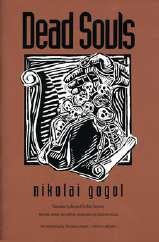

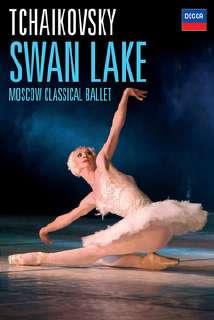
Overall, we all have our own uniqueness in each country. We have religion, culture or cuisine. The reason I wrote this article is because I want to express love and every positive moment that most people don't know.

What is the meaning of smile?
Is it something that's worth running a mile?
And don't you feel this strange feeling too When someone just simply smiles at you?
Smile is not just an expression But a great possession Which you can simply regain Even from a little rain
This is something that Makes your mouth ends rise And like a happiness swings Come to you from the very heights
So don't be afraid
To share it too As it definitely Will come back to you




Head Editor
Hi, I’m Ember! I’m in Year 12 and I’m on the aerial arts and swim team. I love musical theatre and as Head Editor, I’m really excited to get to know you all and make the school even better. Watch out for fun new articles and everything else we have in store for you this year...
Hey, I’m Kathryn Willis, but you can call me Katie. You can usually find me in the music department, ranting about schoolwork or telling people to do Model United Nations. Empowering student voice is very important to me, so I am honoured to be able to create and edit this magazine.
Hey everyone! I’m Miyuka Kawamura and I’ve been at BISP since Year 3. I’m passionate about medicine, entrepreneurship, aerial and singing. As editor, I hope to be involved in many thrilling issues of this magazine! I’m excited to get to know you so give me a shout if you see me around!
Taisiia Chernova
Head Editor Editor Editor
Hey guys! My name is Taisiia and I’m currently in Year 12. I’m really excited to read what people have to say and work closer with everyone on the magazine! Always feel free to come up to talk to me whenever you need to!
Additionally, thank you to our staff editors and publishers: Mr Dilts, and Mr Crossland
Ahugethankyoutoour
StudentContributers
Cloe Boezio
Daisy Cheung
Deepika Raghunath
Elina Shestakova
Elizaveta (Liza) Krapivina
Kathryn (Katie) Willis
Kirill Markov
Miyuka Kawamura
Paige Morze
Pattanasit (Mammoth) Khoopongsakorn
Petr Glukhov
Taisiia Chervova
Yingzhen (Zoe) Song



